Search
Search Results
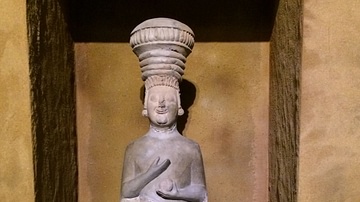
Image
Phyrigian Goddess Cybele, Ankara
Representative statue of the Phyrigian Goddess Cybele, exhibited in the Museum Of Anatolian Civilizations. Ankara province, Turkey.
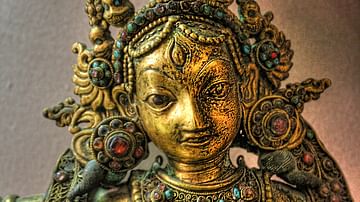
Image
The Goddess Tara
Hindu-Buddhist goddess Tara, 15-16th century.
Ganga State Museum, Bikaner, India.
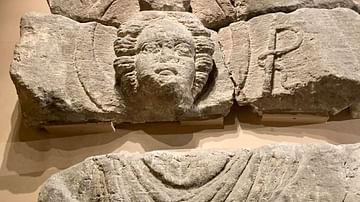
Image
Goddess Luna Pediment
Pediment from the temple of Luna, the Roman moon goddess. The temple was in use during the Roman era in Britain (1st- early 5th century CE). The carving from the pediment at Luna’s temple is still preserved and can be viewed in the Roman...
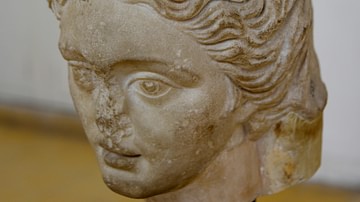
Image
Head of the Goddess Tyche
Head of the goddess Tyche, the daughter of the Greek god Zeus and the protector of the city of Amman and the Roman emperor. It was believed that she would bring good fortune to the city of Philadelphia. This image of her was found on many...
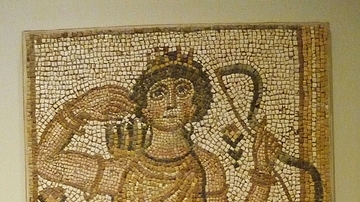
Image
Floor Mosaic with the Goddess Artemis
This floor mosaic with the goddess Artemis is made of limestone tesserae and was made in the Eastern Mediterranean, c. 400-500 CE. (Royal Ontario Museum, Toronto)
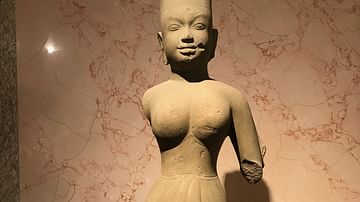
Image
Ancient Statue of Goddess Uma
This ancient statue of the Hindu goddess Uma (Parvarti) is rendered in the pre-Angkor style of Prasat Andet. It comes from Cambodia, it is made from standstone, and it dates to the late 7th or early 8th century CE. (Museum Rietberg, Zürich...
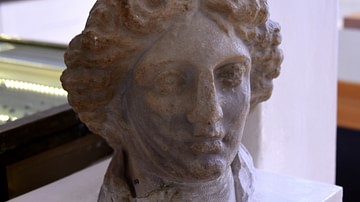
Image
Head of Goddess Artemis
Marble head of Artemis, the Greek goddess of the hunt, forests and hills, and archery, from Pella, the Jordan Valley, modern-day Jordan Hashemite Kingdom, 1st century CE.
Jordan Archaeological Museum, Amman.
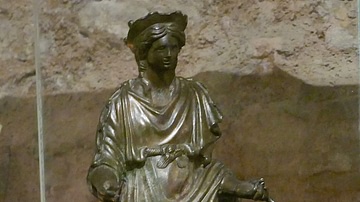
Image
Goddess Sequana Figurine
A bronze figurine of the Celtic deity Sequana, a healing goddess, regarded perhaps as the personification of the River Seine. From her sanctuary at the source of the river near Dijon. (Archaeological Museum of Dijon, France)
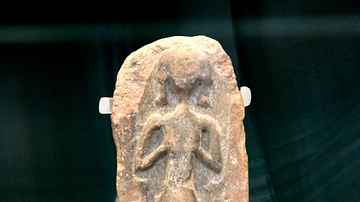
Image
Goddess Astarte Plaque
Terracotta plaque depicting the Canaanite goddess Astarte. The Late Bronze Age at Lachish. (The British Museum, London).
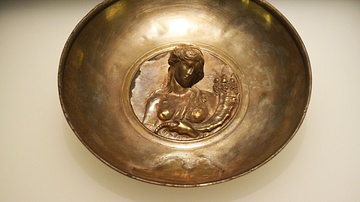
Image
Goddess Phiale from Ancient Georgia
This phiale comes from the Armaziskhevi archaeological site in Georgia and dates from the 2nd century CE. The medallion of the phiale features a goddess — Fortuna or Amalthea — with cornucopia. Separate parts of the relief are gilt. The creator...